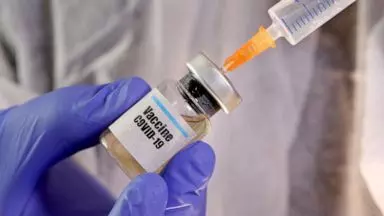
Early COVID infected are safe with single vaccine dose: study
text_fieldsA single dose COVID vaccine is found to exert strong protection against SARS-CoV-2 coronavirus variants in those previously infected with the disease.
The researchers at Imperial College London, Queen Mary University of London and University College London, looked at the UK and South African variants for their study, however, claims that the results will apply to other variants too, such as Brazil (P.1) and India (B.1.617 and B.1.618) variants.
The findings, published in the journal Science, found that after the first dose of vaccine, prior infection was associated with a boosted T cell, B cell and neutralising antibody response, which could provide effective protection against SARS-CoV-2, as well as the Kent and South Africa variants.
But in people without previous SARS-CoV-2 infection, a single vaccine dose resulted in lower levels of neutralising antibodies against SARS-CoV-2 and the variants, potentially leaving them vulnerable to infection and highlighting the importance of the second vaccine dose.
However, It remains unclear precisely how much protection is offered by T cells like the T cell immunity could be reduced, enhanced or unchanged compared to the original strain, depending on genetic differences between people.
"As new variants continue to emerge, it is important to fast track global rollout of vaccines to reduce transmission of the virus and remove the opportunities for new variants to arise," said Rosemary Boyton, Professor of Immunology and Respiratory Medicine at Imperial College London, who led the research.
























